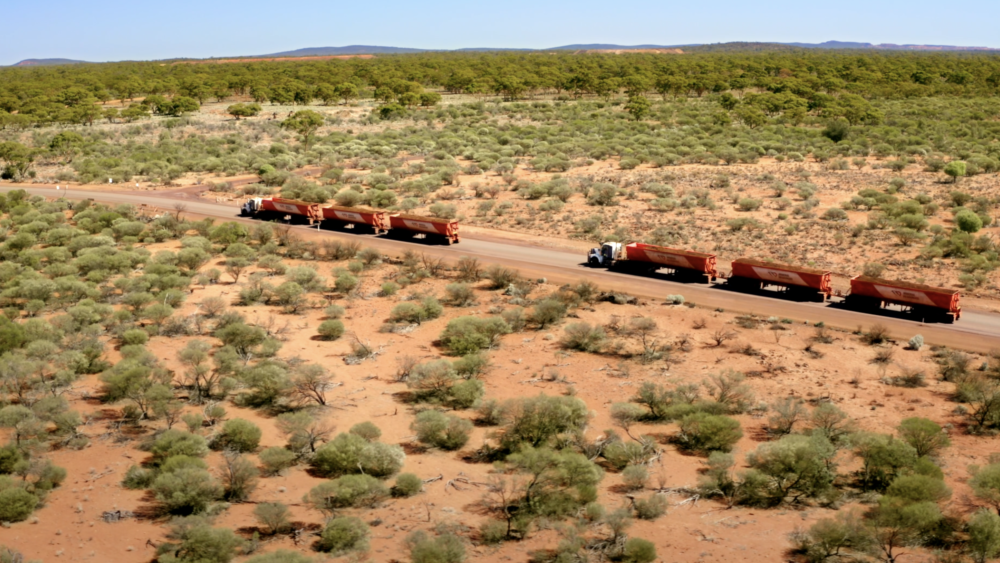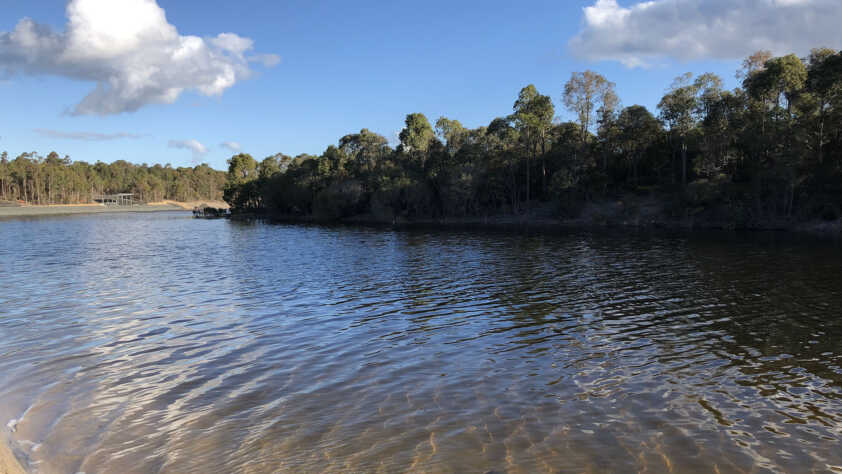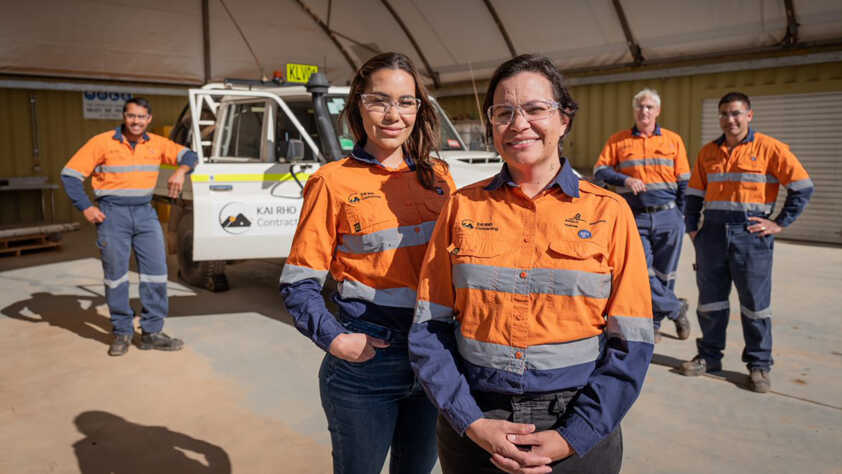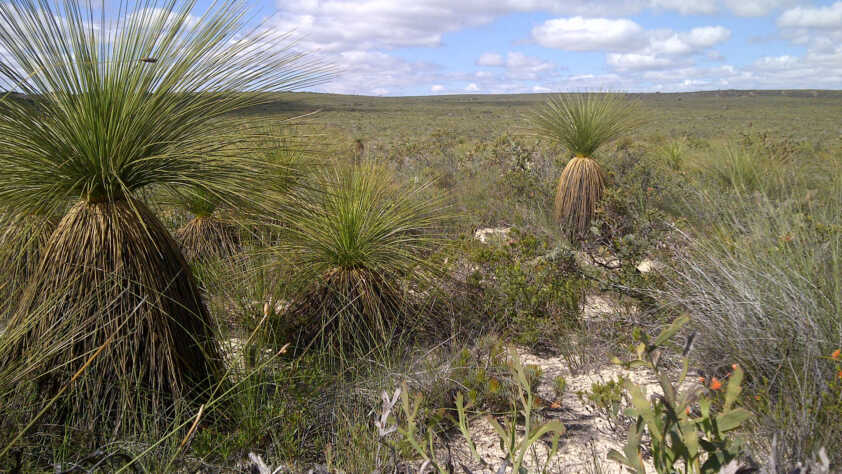Mineral Resources has hit paydirt with its autonomous road train project – announcing a world-first success from a platoon hauling a cumulative 900 tonnes of iron ore.
The WA mining services company, which operates iron ore mines in the Pilbara and Yilgarn cratons, announced the trial of the autonomous road trains late in 2021.
The successful testing of the technology at Mineral Resources’ Yilgarn operations in the first quarter of 2022 involved three triple-trailer road trains carrying loads of 300 tonnes.
Only the lead road train in the platoon requires a driver in the cabin.
“It’s been an exciting journey over the past year and we’ve now achieved a world-first platoon of three autonomous road trains, which is a game changer for us,” Mike Grey, Mineral Resources’ Chief Executive – Mining Services, said.
“It’s an extremely proud moment to see our autonomous project grow from desktop concept to iron ore reality so quickly.”
The project has been undertaken in partnership with autonomous solution specialists Hexagon, with a view to “live” introduction to enable pit-to-port capabilities at Mineral Resources’ Ashburton hub project.
The autonomous road trains are planned to be used in platoons of four, with a driver occupying the front vehicle. They will not be travelling on public roads.
“As we get ready for the Ashburton Hub Iron Ore Project and look to unlock stranded tonnes of iron ore, our autonomous road trains will be the vital link between the pit and the port,” Grey said.
“As the first of its kind in the world, it opens up new opportunities for us, as we can trial the technology ourselves before offering it to our Tier 1 customers.”
Grey told ABC radio there were several advantages to the autonomous haulage solution, including the removal of safety risks associated with driver fatigue, the ability to seamlessly service a variety of satellite pits that can shift over time (this is a challenge for more traditional rail haulage) and the potential to unlock deposits that could previously have been considered economically unviable. The latter, he said, could ultimately create new jobs in mining.
Automation has been a key area of transformation for the WA mining and resources sector over the past decade.
Rio Tinto’s autonomous heavy haul railway system – dubbed by the company as the “world’s largest robot” – was in 2020 one of six WA winners of Engineers Australia’s Engineering Excellence Award, and the only WA finalist for the Sir William Hudson Award recognising the best engineering project in the country.
FMG has introduced a fleet of driverless utes at its Christmas Creek operations. The on-board automation system allows the driverless vehicles to make more than 10,000 annual short trips to collect equipment and parts which otherwise would have to have been performed by maintenance team members.
Meanwhile, the WA School of Mines in Kalgoorlie-Boulder appointed Dr Robert Solomon in August 2020 to be the institution’s first ever Professor of Practice in Mining Automation and Data Analysis. Dr Solomon’s appointment came in partnership with FMG, where he continues to work as Manager of Operational Duties.
Hexagon is a leading Australian provider of data-based and autonomous solutions to mining challenges – including those around safety.
The company is the Australian installer of Guardvant technology, which uses camers in mining equipment to monitor eye movements of operators and recognise when they are suffering from fatigue.






